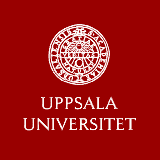Kalendarium
Högre seminarium1 sep 2015 kl. 15:15 – 17:00
Lokal: UCRS Library, Gamla Torget 3, 3rd floor
Dr. Eugenia Kelbert (University of Passau)
Outside Russian: Patterns In Translingual Poetry and Prose
From Pushkin's dalliances in French to such literary giants as Vladimir Nabokov and Joseph Brodsky, Russian writers and poets have turned to languages other than Russian for some of their major work. An extreme example, Romain Gary, who makes it clear in his work that he thinks in his native Russian at least sometimes when writing, chose to write a series of bestselling novels, instead, in French, which he first learnt at the age of fourteen, and in English, which he acquired as a war pilot stationed in London.
Does writing in a second language - translingual writing - affect the style and the poetics of a literary work? Does the writer, when he or she switches to a second language, come also to use language and create meaning differently than the same writer would do in the L1? To what extent is this effect generalizable across writers, genres and language choices, or indeed across prose and poetry? How does knowing that the author is writing in a second language help us understand the stylistic landscape of his or her work? In this talk, Eugenia Kelbert will address these questions with reference to the work of Joseph Brodsky, Romain Gary and Vladimir Nabokov, all three of them near-contemporaries and translingual writers who switched to English (and, in Gary's case, French) at a high point of their career.
The switch to an acquired language, Dr. Kelbert argues, leads the writer to a different emphasis in both style and content, as well as a different relationship to language. In order to better understand this phenomenon, Dr. Kelbert draws on a range of methodological approaches such as translation theory, close reading, psycholinguistics, genetic editing, and distant reading. She shows that a translingual text is marked both by a shift from the given writer's habitual style and by its place in a particular niche in the adopted language's literary tradition in ways that make it distinct within the umbrella category of bilingual or multilingual literature. A better understanding of translingual writers also adds, crucially, to a little-studied aspect of a rich and idiosyncratic body of work that, though often categorized out of the Slavic realm, has an important place in the study. of Russian literature. Eugenia Kelbert is currently employed as a Lecturer/Research Associate in Slavic Literatures and Cultures at the University of Passau, Germany. She completed her PhD in Comparative Literature at Yale University in 2015. She has published on translingual work by Joseph Brodsky, Rainer Maria Rilke and Eugene Jolas, among others, and is involved in several ongoing scientific collaborations in Digital Humanities and cognitive poetics. Her other interests include translation theory, modernism, poetry, autobiography, literary genres of the cabaret, and quantitative approaches to literary analysis. Her current project is to turn her dissertation, entitled "Acquiring a Second Language Literature: Patterns in Translingual Writing from Modernism to the Moderns," into a book-length study of translingual or second-language literature.
